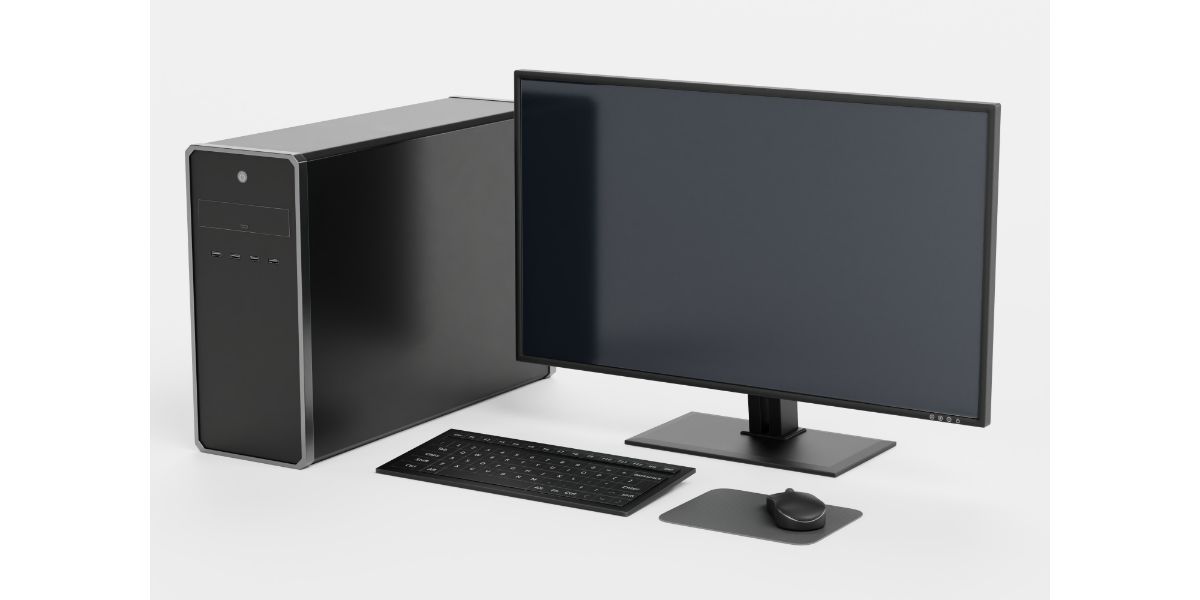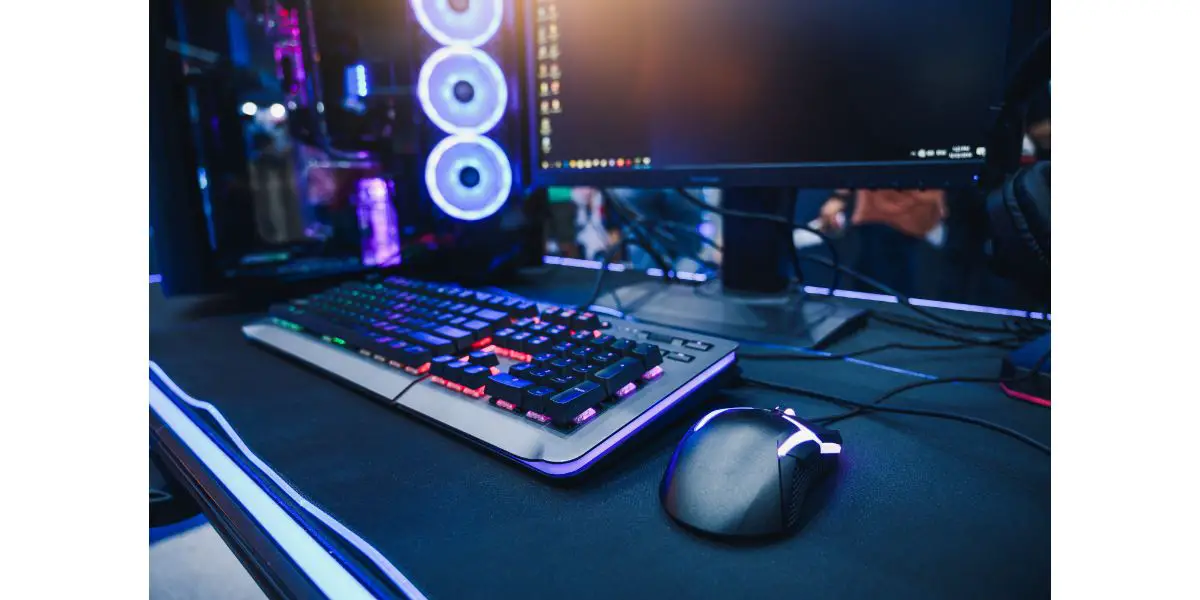Disclaimer: This post may contain affiliate links, meaning we get a small commission if you make a purchase through our links, at no cost to you. For more information, please visit our Disclaimer Page.
The resolution of your PC plays a key role in how you play games and your overall performance. It can slow things down and make background scenes so dark you can barely see your enemies or help you move smoothly through some of your favorite games. You need to know how desktop resolution affects your gaming performance and what you can do to improve it.
Table of Contents
Does Desktop Resolution Affect Game Performance?
Yes, the resolution of your desktop does affect your game performance. Do you remember the days of Nintendo and Sega games where you were lucky if you could see Sonic racing over hills or Mario jumping on mushroom heads?
Games changed a lot over the years, which is why older titles look so dated today. If you ever played Halo when it first came out, you can compare it to the latest release and see how much the graphics changed.
Many gamers today invest in 4K or UHD monitors because they want to get more out of their games. Keep in mind that your desktop and game resolution is different.
While your desktop resolution refers to the resolution of your monitor, your game resolution is not the same. Though some claim that the resolution does not affect overall performance, it can in a few ways.
If the resolution is poor, you may have a hard time keeping track of the people and characters you battle with. You may find that you cannot track what happens in the background or any text that scrolls across the screen.
What Affects Desktop Gaming Performance?
Whether you’re a fan of racing and action games or you prefer titles that let you build structures and follow adventures, you need to know what factors affect your gaming performance. These factors can impact how quickly you move and how well you can complete tasks.
1. Shading
Many games have built-in shading that casts shadows on characters and scenes to create the perfect atmosphere. It can make it a little harder to see what you need to do.
2. Your Position
How you sit or relax as you play can play a big role in your performance. Players who feel comfortable as they play often do better than those who sit on hard chairs or other uncomfortable positions.
3. Distractions
If you ever tried to play a game when your dog wanted to run through the house, or your roommates decided to have a loud conversation, you know how much distractions can affect your performance.
4. Controls
Ergonomic controllers reduce discomfort and prevent muscle strain. You might find that playing with an ordinary keyboard causes you to perform poorly.
5. Internet Speed
Your internet speed can affect how well you play online games. A poor or low speed can result in a lot of glitching and lagging.
6. Setting Level
When you play games set to a higher level like advanced or difficult, you need to put in more work. This can make you feel stressed and alter your performance.
7. Competition
Playing against other gamers can affect how you play, too. While you might love playing against beginners and those with less experience, you may dislike playing against gamers who keep killing you or getting in your way.
8. Anti-aliasing
Anti-aliasing is a feature that works with your graphics card to improve the way you play. It can take care of rough patches and jagged areas. Though you can go into your system and change this setting, keep in mind that some changes will affect the performance of your GPU.
9. Memory Space
The total amount of PC memory you have affects your gaming performance, too. When you have more available memory, you can load games faster and spend less time waiting for new games to download.
10. Volumetric Lighting
Volumetric lighting can pull you deeper into a game and add to the game’s atmosphere, but it also uses a lot of your computer’s resources and can slow down your system. You can turn off the feature to increase your FPS.
Does Resolution Really Matter for Gaming?
The responses to whether resolution really matters for gaming are mixed. When you compare the graphics from a PS1 or PS2 to those on a PS3 or PS4, it’s clear why many gamers feel nostalgic for those games but prefer modern titles.
The same is true of modern computer games, too. New systems have better resolutions and provide a more immersive experience.
You’ll also find that you love the benefits of playing with a PC that has a better resolution. The new monitors enhance your vision and reduce eye strain because you no longer need to struggle or squint to follow the action.
Many gamers also love that they can easily keep track of their characters as well as any other characters when playing online games. Some of the downsides include that a higher resolution uses more resources and that you might find your PC runs too hot.
Can Any Desktop Be Used for Gaming?
When you compare the cost of a gaming PC to a regular computer, you might find yourself shocked at just how much some systems cost. A good gaming PC can easily retail for $1,000 to $2,000.
You can walk into any electronics store and pick up a standard laptop or desktop for half as much or even less. While you can use any desktop for gaming, most standard PCs have some limits regarding games.
Before you spend money on a new PC, think about the games you love to play and the minimum requirements each one has. Both the Call of Duty and Battlefield franchises require a lot of resources that a standard PC lacks.
While you have the option of playing those games, they can run quite slowly and make your PC slow down. Even after you shut down the game, you may need to restart your PC because it runs so slow.
Another issue is that a standard PC has difficulty running multiple apps simultaneously. If you want to watch Hulu while downloading a game and working on a project for school, don’t be surprised if your PC keeps freezing because it can’t do all of those things simultaneously. A gaming PC can run multiple apps without slowing down and let you do several tasks without any problems.
You’ll also want to consider the amount of memory or hard drive space. Gaming PCs have more than enough room for any games you want to play. With a standard desktop, you may not have enough available hard drive space to download some games.
Even if you can download and play them, you may run out of room as you progress through them. If you have enough money for a gaming PC, you’ll usually find that it’s a better option than a standard PC. Though you can use any desktop for gaming, you won’t get as much use out of one.
Why Does My Computer Lag When I Play Video Games?
Lagging is one of the biggest issues facing gamers. This refers to an issue between the latency and the user’s action. When you play a racing game and experience lag, you might find that your car doesn’t turn as fast as it should and that you hit a building. In battle games, lag can lead to you dying and respawning in an entirely new area of the game. The lagging you see in PC games often occurs due to one of several issues.
Lack of RAM: A lack of RAM is one of the leading causes of game lags. You may also suffer some lagging caused by limited hard drive space.
Viruses: Even a single virus or a piece of malware can affect your system and make some of your favorite games lag. Always use caution when downloading games from a new site and regularly scan your PC for viruses.
Outdated Graphics Card: If you play on an old PC, your outdated graphics card can cause lagging. Even gaming PCs can have older cards.
Overheating: Even expensive gaming PCs can overheat. When your PC runs too hot, it can cause your games to lag and make other glitches appear on your screen.
HDD: Most PCs today use an SDD rather than an HDD. Older systems often run off an HDD, which can slow down your games and cause lags.
Game Settings: Many games have settings that can cause them to lag, especially when you play them on an older system. You can usually enter the settings and make a few changes to reduce the lag.
Damaged Hard Drive: Any damage to your hard drive can lead to lagging and other performance issues. You can either check the hard drive or take it to a professional.
Outdated Operating System: You must keep your OS updated to ensure that you fix glitches and other problems. Look online for any updates that are available for your OS.
How to Fix Game Lag
While lag is a serious problem when gaming, you don’t need to change the way you play. Check out some of the best ways to fix the lags you experience.
Open Your Task Manager: There’s a good chance you suffer from some lag because you have too many background apps running. Opening your Task Manager lets you see which apps use more of your resources and close them.
Shut Down Your PC: If you suddenly have a lag problem and never had one before, try shutting down your PC. Wait a few minutes before you restart it to give the computer time to cool down.
Restart Your Router: The lags you witness during online games can occur because of problems with your router. You can unplug the router and let it sit for 60 seconds before you restart it. Many routers also have a reset button.
Look for Driver Updates: Updating your drivers can repair problems that lead to lags caused by hardware issues. Check if your PC has an option to automatically find and install driver updates.
Conclusion
Many things affect your gaming performance, from how you sit and the games you play to your screen resolution and available memory. Upgrading to a better PC or changing some settings and features can help you get the right resolution for all of your games.


